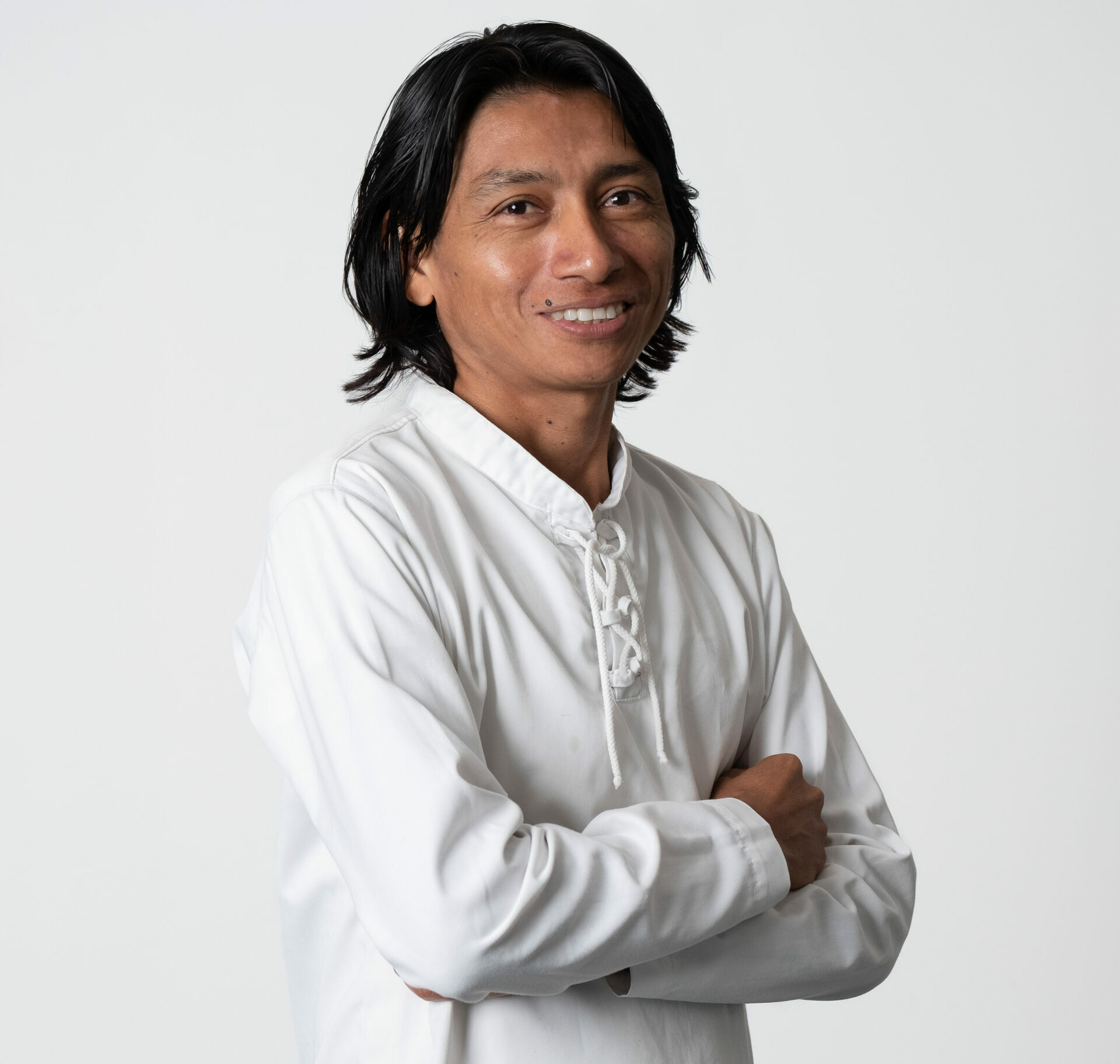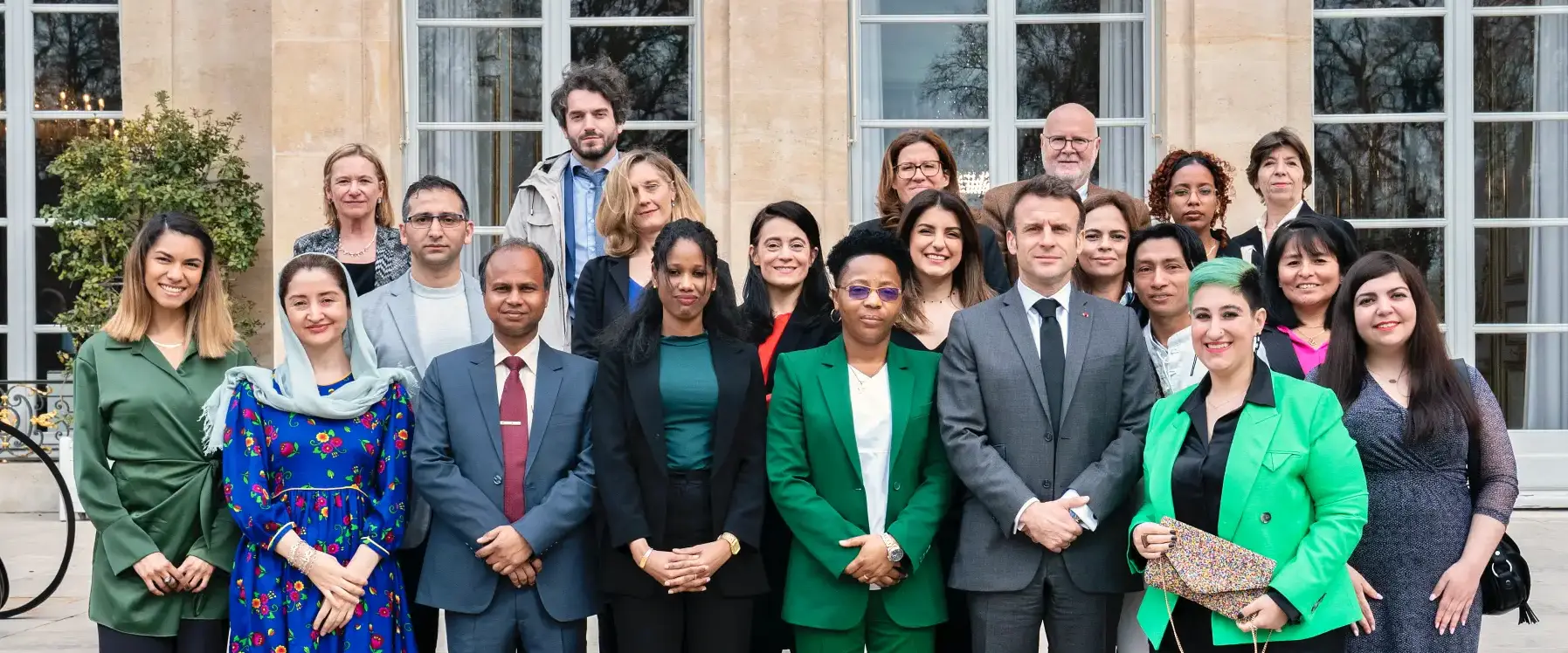
Description
Eliecer Arias Arias is an indigenous man from the Kankuamo people in Colombia. He is a human rights defender and member of the National Movement of Victims of State Crimes (MOVICE). His family was the victim of forced disappearances and extrajudicial executions committed by the Colombian military forces. Since then, he has been accompanying and advising families who have suffered the same crimes in Colombia. Eliecer has been the victim of threats because of his activism, which led him to live displaced in the capital of the country.
Interview with Eliecer Arias Arias - Tuesday, November 28, 2023
Could you please introduce yourself?
My name is Eliecer ARIAS, and I come from the Kankuamo indigenous people in Colombia. I've been working as a human rights defender with the National Movement of Victims of State Crimes(MOVICE) for around fifteen years. This commitment began following the enforced disappearance of my two brothers, victims of extrajudicial executions by Colombian military forces.
Since then, I have been accompanying and advising families who have suffered the same crimes in Colombia. In particular, I work in the fight against enforced disappearances, accompanying other families who have seen their loved ones disappear.
I am also fighting against the impunity that characterizes the Colombian judicial system with regard to victims of enforced disappearance and their families. Under Colombian law, if there is no news of a disappeared person after 6 months, the investigation is closed.
Could you tell me more about your project and your association?
My commitment consists of following up and supporting the cases of people who have been victims of enforced disappearance, ensuring that documents are sent to facilitate their search, and circulating petitions to demand justice and respect for the rights of these people and their families.
This commitment also means providing families with all the necessary means to carry out their search, or to have the right to find the person's body and say farewell in the event of death. This means fighting for the right to use the exhumation process for victims of extra-judicial executions, so that the family can find out what really happened. It is essential to support families in this process and to ensure that their rights are recognized: recognition of the body, the right to a proper funeral. Without this, uncertainty persists and the mourning period cannot take place, condemning the victim's family and loved ones to permanent suffering.
Finally, my work as Rights Defender aims to strengthen the fight against enforced disappearances in the collective consciousness and public debate in Colombia.
How did the Marianne initiative help you make your project a reality? What activities did you find most useful during the program?
I will always be very grateful to the French Republic and to the members of the Initiative for giving me the opportunity to take part in the program. It's an honor to have been selected from among so many human rights defenders; I know there were over 600 applications and only 15 were selected.
This opportunity enabled me to strengthen my knowledge and skills as a human rights defender, and to network with other human rights defenders in France.
Back in Colombia, I was able to take advantage not only of these lessons, but also of the resources provided by the Marianne Initiative. For example, I used some of the resources I received on a monthly basis (Editor's note: Marianne Initiative Program winners receive a monthly grant to cover their day-to-day expenses and fund their activist project) to support a family whose member had died following a disappearance. This sum was used to cover funeral expenses, and also to help support the family for a period of time. In my opinion, this support is essential, so that families who can't afford it can begin the grieving process.
Finally, the Marianne Initiative has been a great help in the development of my project to build a training and capacity-building center for the defense of young people and women victims of armed conflict. I managed to organize a first meeting with a group of committed young people, who are destined to become future leaders in this fight. My ambition is to contribute to their training, so that they will be able to effectively defend, in Colombia and internationally, the victims of armed conflict, as well as the rights of indigenous peoples in Colombia.
Have you kept in touch with the other winners since the end of the program?
Only with my comrades from Venezuela (Ana Leonor Acosta Merida), Peru (Karin Ruth Anchelia Jesusi), El Salvador (Virginia Roque Aguilar), and Cameroon (Estelle Ewoule Lobe).
I would have liked to share more information about my activist commitments in the months following the end of the Marianne Initiative, but I had a health problem on my return to Colombia, which forced me to be hospitalized for two months. I'm better now, and I'm happy to be able to get back to work, and to share the fruits of this work in defense of the victims of enforced disappearance with the network of activists I was able to meet in France.
Would you like to add anything?
Yes, I'd like to send a message to the future laureates of the Class of 2024: participation in the Marianne Initiative is a unique opportunity that they should make the most of; we have access to top-quality training that helps strengthen our activist project. The program also offers exceptional opportunities for encounters between rights defenders and with a wide variety of organizations. It's because we've been selected from such a large number of human rights defender candidates that we need to make the most of this experience.
Do you have a question? Please contact us!
Contact
